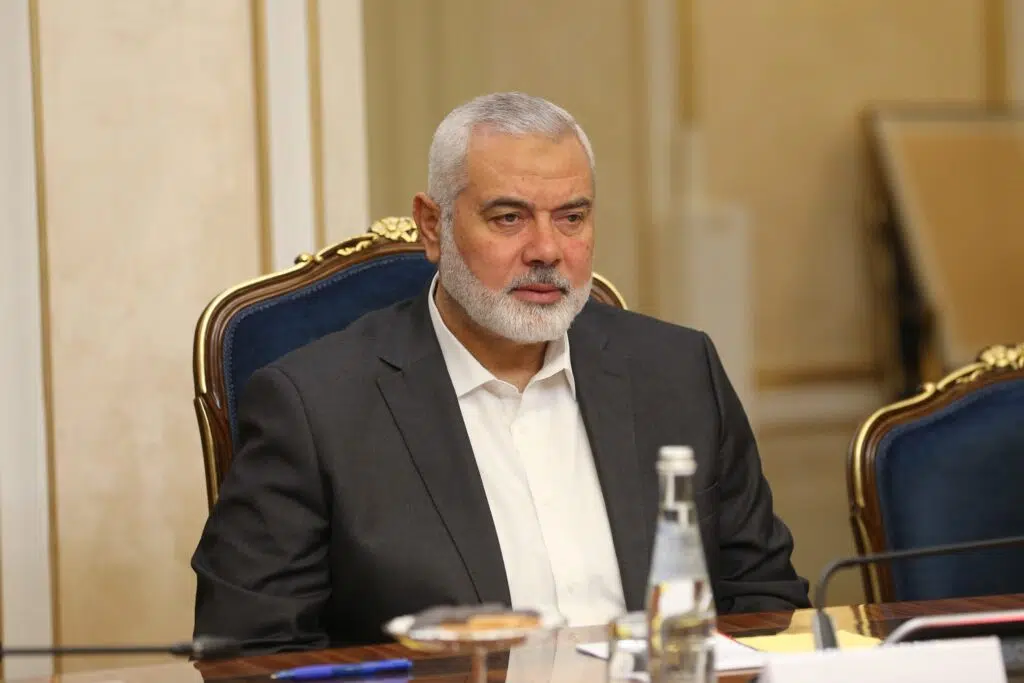CAIRO: Hamas officials said leaders of the Palestinian militant group, one of whom is in Cairo for talks, were considering a proposal for a longer-term ceasefire that has the support of Israel.
Hamas officials said Friday that the group is studying a proposed cease-fire deal that would include extended pauses in fighting in Gaza and the exchange of Israeli hostages captured by Hamas for Palestinian prisoners in Israeli prisons.
However, the group also appears to have ruled out some key components of the proposal.
Hamas’s top political leader, Ismail Haniyeh, has been in Cairo for the past two days to evaluate the offer.
In a statement on Friday, Haniyeh said the talks must “completely end” Israeli military operations in Gaza and bring about the withdrawal of Israeli forces – terms Israel rejected.
Another senior Hamas official based in Beirut, Osama Hamdan, said the group would also demand the release of thousands of Palestinian prisoners held for acts related to the conflict with Israel.
The current proposal, although not released in full, is believed to include conditions for small-scale prisoner releases that depend on the release of hostages.
It is not clear when or if Hamas will give a clearer response to the proposal or submit a counter proposal.
According to the US, the Algerian Security Council resolution on the ceasefire threatens the ceasefire negotiations
Meanwhile, the US said on Friday that an Algerian-drafted UN Security Council resolution calling for an immediate ceasefire in Gaza could jeopardize talks on a possible cessation of fighting.
Also read: Knife attack wounds three in Paris
“This draft resolution could jeopardize sensitive negotiations – derailing an exhaustive, ongoing diplomatic effort to secure the release of the hostages and provide an extended pause that Palestinian civilians and aid workers so desperately need,” Linda Thomas-Greenfield, the US ambassador to the UN, told reporters.
This week there were reports that Algeria submitted a draft resolution to the Security Council on Wednesday. Whether there will be a vote or a debate is unclear; it already seems unlikely to pass given the need to avoid the US veto.
“If adopted and implemented, this proposal would move all parties one step closer to creating the conditions for a sustainable cessation of hostilities,” Thomas-Greenfield said.
She argued that it was “the duty of the Security Council to ensure that any action we take in the coming days increases the pressure on Hamas to accept this proposal”.
Western foreign ministers are still trying to mediate
The latest push for a period of reduced fighting, following the collapse of a week-long ceasefire interrupted by a prisoner exchange last November, coincides with a continued intensive diplomatic effort in the region.
British Foreign Secretary David Cameron was in Beirut on Friday, where he appeared to encourage Israeli Prime Minister Benjamin Netanyahu to get involved in the issue of a future Palestinian state.
In an interview broadcast by Lebanon’s LBCI television, Cameron said that despite some of his recent comments, Netanyahu had not “comprehensively ruled out a two-state solution”.
“My message to him was to start talking about the things a Palestinian state could be, rather than the things it couldn’t be,” Cameron said.
He also said there would come a time when British policy would seek to recognize a Palestinian state, including at the United Nations.
“That can’t be early in the process,” Cameron said. “The process has to get going. But it doesn’t have to be at the end of the process.”
French Foreign Minister Stephane Sejourne is also expected in the region on Saturday, first in Israel. And US Secretary of State Antony Blinken will tour the region again from February 4th to February 8th.
Hamas fighters killed 1,200 people and took more than 200 hostages during the October 7 terror attacks on Israel. Israel responded with an offensive in Gaza that has killed 27,131 people to date, according to the Hamas-run health ministry.







